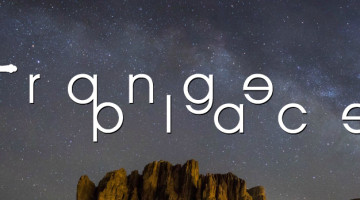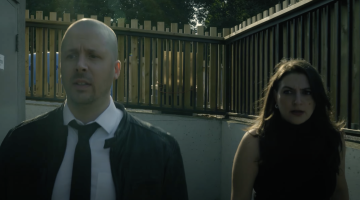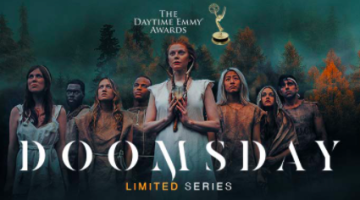It took a hole-in-the-wall Japanese restaurant, packed so tightly during the lunch rush that I could barely breathe, to convince me to sign on. Maybe it was the admittedly excellent food; perhaps it was the cramped quarters and lack of oxygen; but, somehow, Julian Stamboulieh’s enthusiasm was infectious—and his bold claims were believable.
Yeah. Maybe we could make a web series where LARPers aren’t the butt of every joke.
Julian first had the idea seven years ago after hearing about Live Action Roleplaying (LARPing)—if groups of people gathered to act out a fictional world on a regular basis as a hobby, how would the game affect their real lives? And could players keep their worldly concerns separate from their fantasies? He approached me with a script, knowing that I was a LARPer myself. He started off by saying, “Well, it’s about a group of LARPers—“
—and I immediately felt my stomach churn.
Geek culture has always been the butt of jokes, but the unspoken, dirty truth about geeks is that they’re often just as happy to turn on each other. Each subculture has to endure its own special brand of mockery: LARPing is no exception. (LIGHTNING BOLT! LIGHTNING BOLT!) The popular perception of LARPing isn’t terribly flattering: socially maladjusted dorks running around in the woods, accepting another reality because they’re unable to handle the real world.
 But Julian’s take was different as I read his script—ironically, perhaps it was because of his unfamiliarity with the subject matter. His stories and his jokes were focused more on character than on the game itself. I gave him my notes, encouraged him to work on a second draft (asking to see it within a month), and then I never saw another page from him.
But Julian’s take was different as I read his script—ironically, perhaps it was because of his unfamiliarity with the subject matter. His stories and his jokes were focused more on character than on the game itself. I gave him my notes, encouraged him to work on a second draft (asking to see it within a month), and then I never saw another page from him.
Julian was too busy becoming a photographer and filmmaker to pay enough attention to his pet project. Every so often, I’d ask him where he was on his series, but I started to assume that the script would never be made.
Years later, I get a message from Julian, asking to meet him about the series. Eating a pork dish that had no right to be as tasty as it was, I listened to him confess to me that he no longer had a script for his series about LARPers. Instead, he wanted me to write it. “You’re a LARPer yourself.”
Such logic is hard to refute in a restaurant like that.
I knew I had the time to develop the story and write the script, being between projects, but I was hesitant. I’d been LARPing for 14 years, and I really didn’t want to add another embarrassment to my hobby. I figured that I could bail on the project in the sneakiest way possible: I agreed to do it with a single condition. “It has to be done right. I don’t really want to do this if it isn’t going to be good.”
And then Julian started going over what he had in mind: the contacts he’d gained while working as a commercial filmmaker in Montreal. He floated casting ideas—many of them friends of mine, fellow Concordia University graduates. He had a timeline. A producer, his Beanduck Productions partner Benjamin Warner. Most of all, he had a confidence that made me sit up and take notice. “Everyone underestimates Ben and me. And we always prove them wrong.”
Here I was, underestimating my friend. I didn’t think we were the ones who’d be able to take on a subculture’s maligned reputation, but he had this boyish grin on his face, even as his tone was serious.
Well, hell. We’d have fun trying do it right, wouldn’t we? And the pork was amazing.
My second condition—that we continue story development on a coffee shop terrace, so that I could hear myself think—Julian readily agreed to, so I was out of excuses.
I became the writer, and a co-creator, of LARPs: The Series.










No Comment